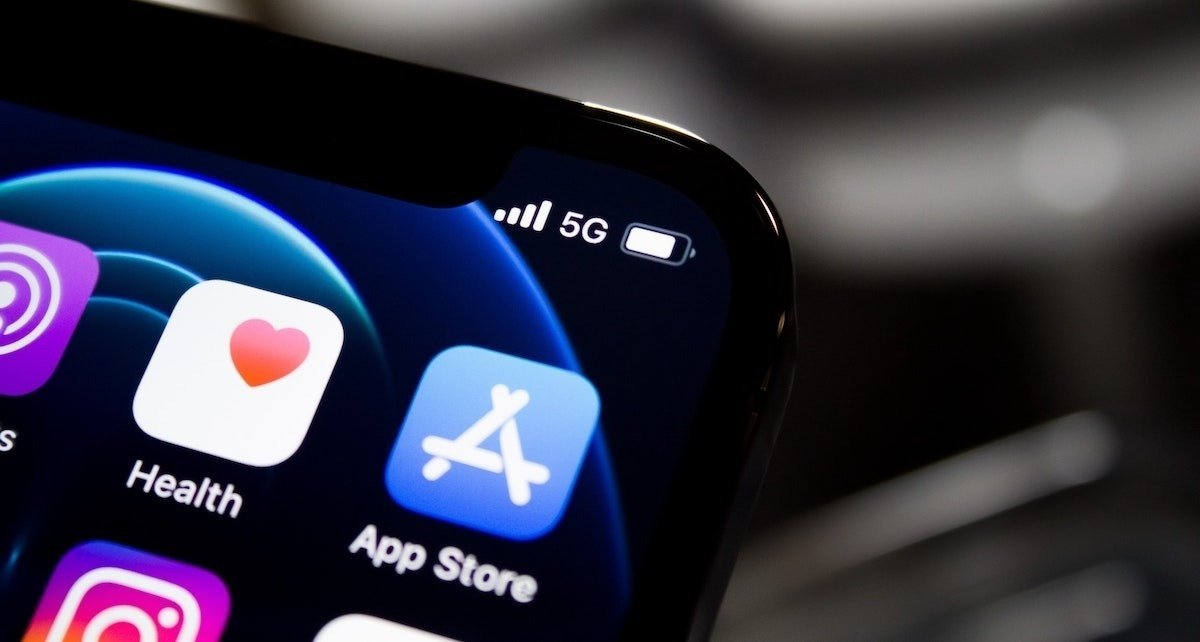The "Open App Markets Act" could cause severe trauma to the App Store ecosystem, a think tank warns, with the proposed legislation potentially damaging the value of iOS and Android as platforms for consumers.
Lawmakers in the U.S. House of Representatives and the Senate are attempting to curb the market power of digital storefronts such as Apple's App Store and the Google Play Store. A pair of bills were introduced in April titled the "Open App Markets Act," which included a number of measures that could weaken the tech giants' market control.
These include a ban on app stores requiring developers to use their payment systems, another ban on app stores punishing apps for offering different pricing structures via other platforms, and to ban app stores from using non-public information to compete with third parties.
In a blog post for the American Enterprise Institute, a public policy think tank, non-resident fellow Mark Jamison offers that the legislation is an example of lawmakers "mistaking great products for market power."
Jamison is a director and Gunter Professor of the Public Utility Research Center at the University of Florida's Warrington College of Business. He has also worked with different branches of government, including as a member of an FCC transition team, and a special adviser to the chair of the governor of Florida's Internet task force, among other areas.
The bill sponsors believe Apple and Google are "wielding incredible power" and are denying "startup tech companies a fighting chance" by adopting practices that are "a direct afront to a free and fair marketplace."
According to a working paper Jamison contributed to that looked at how startups chose to use iOS, Android, both, or neither platform, most firms analyzed viewed iOS and Android as "clear substitutes or at least complements" to each other. This implied Apple and Google are in competition for the business of the startups.
Of those who had a clear preference for iOS or Android, they were apparently indifferent on using mobile platforms at all, "also implying no market power," says Jamison.
The working paper also determined that the app economy is "vibrant and robust, in direct contradiction with the senators' claims," with U.S. startup businesses accelerating rapidly after the introduction of the iPhone.
It was also determined the number of app publishers receiving more than $2 million in 2020 was up 25%, while the use of finance-related apps by Americans increased 90%.
"Market power is the ability to raise prices and suppress output without inviting more competition. Apple and Google appear to be encouraging growth, not suppressing it," reasons Jamison. "And their fees appear on par with platforms."
However, Jamison believes the bills would "ironically" damage the value consumers gain from the platforms, because they will "run counter to what consumers want."
One example points out that Google already allows app store sideloading, while Apple does not, with consumers and some developers apparently preferring those choice.
"Google caters to techies, while Apple serves people who love their slick, easy-to-use devices," he adds. "The act would make iOS more like Android and, in doing so, would damage the people-oriented technology leader that Steve Jobs created."
Jamison goes on to refer to the Thomas Sowell "anointed" illusion, in that where the so-called anointed see a system they think is wrong in some way, they "conclude that they should impose their vision on others, not realizing their lack of knowledge will make things worse."
The bills arrive at a time when the App Store faces intense scrutiny. Antitrust bills in the House are intended to reduce the amount of power tech giants wield, following a months-long investigation into market power.
Apple is also waiting for a decision to be made in its legal battle with Epic Games, over its App Store guidelines and commission tiers.
 Malcolm Owen
Malcolm Owen







-m.jpg)






 Charles Martin
Charles Martin
 Christine McKee
Christine McKee
 Wesley Hilliard
Wesley Hilliard

 Andrew Orr
Andrew Orr
 William Gallagher
William Gallagher
 Sponsored Content
Sponsored Content








25 Comments
Finally someone who’s thinking about the consumers. Tech companies don’t wield anymore power than oil companies, big box stores or crooked politicians. This is all diversion from what the real problems are in this country and world.
I call BS, this think tank is probably funded by Google / Apple
Do I agree with forcing companies to allow other payment methods inside of their App Store? Absolutely not.
Do I think developers should be able to publish software outside of the App Store that Apple deems unsuitable for it? Absolutely, yes!
Customers having a side-channel will allow developers to publish software that Apple doesn't want on the App Store, it will allow apps like emulators, game streaming, Kodi, "adult" apps, and any software that Apple may decide they don't want available to iOS users in the future.
Them blocking game streaming is anti-trust and I don't know how they haven't been sued for it.
Them blocking emulators serves no purpose for the consumer other than to encourage them to buy new games on the App Store, possibly ports of the old games they already own copies of.
No mention that AEI is a rightward corporate puppet of a think tank. Of course they'll side with corporate interests. This isn't about protecting consumers. It's about protecting profits by any means necessary.
sellingscanning at the POS checkout. We've saved a few dollars by stripping all semblance of professionalism and customer service out of the sales channel so we can maintain the lowest possible pricing and by building all products wherever and by whomever it's as cheap ashumanlyrobotically possible.